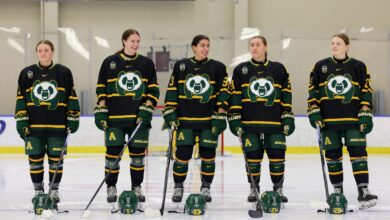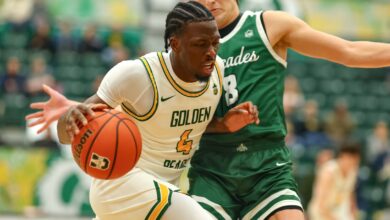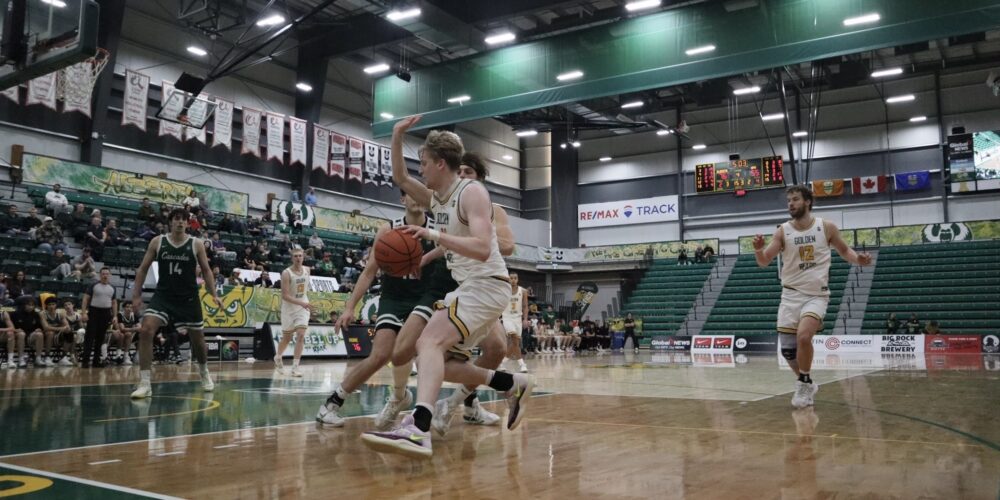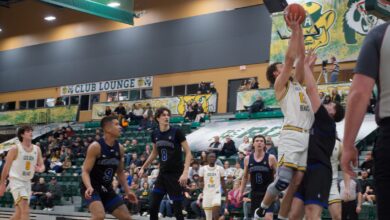U of A doctoral students serve as assistant coaches for women’s sitting volleyball team
"There's not a lot of teams that are game planning the way that we do," Rozendaal says.
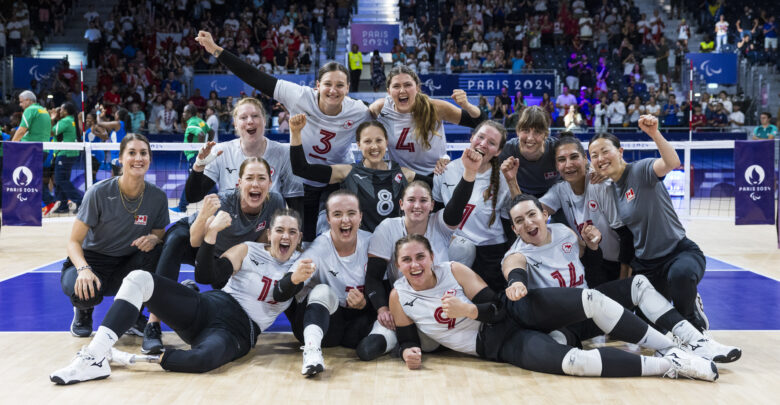 Supplied
SuppliedThe Canadian women’s sitting volleyball team came back with bronze medals from the 2024 Paralympics in Paris. Two doctoral students from the University of Alberta were assistant coaches on the team.
Kate Rozendaal and Chelsea Hobbs are doctoral students with the counselling psychology program in the faculty of education. They were introduced to the Canadian sitting volleyball team by Nicole Ban.
Ban is an associate coach for MacEwan University’s women’s volleyball team and head coach of the women’s national sitting volleyball team. Hobbs and Rozendaal were both officially hired to the team in 2019.
Being doctoral students lended to coaching the team, Hobbs says
Both Hobbs and Rozendaal have played volleyball. They said that being able to bring that knowledge into coaching the team was “really helpful.”
“Pulling on some of our own strengths in terms of our prior volleyball experience has been really helpful. Dividing [our efforts] as a collaborative team of coaches who are all women,” Rozendaal said.
Hobbs added that being students in the counselling psychology program lends itself into coaching the team.
“There’s parallels between coaching and therapy. The skill set that you possess, for one, is very well suited to the other. We’re training those skills outside of a sports context. [It] lend itself well to being able to communicate, work within a team, support athletes, challenge athletes,” Hobbs added.
The team created a “collective ambition to reach the podium,” Rozendaal says
Hobbs and Rozendaal were part of the team when they went to compete at the Tokyo Paralympics in 2020. That year, the team didn’t make the podium.
One of the major changes the team implemented was a focus on “elevating the understanding of the game,” Rozendaal said.
“Understanding different systems, how to watch an opponent, assessing how they’re moving through time and space. I think just elevating the deeper understanding of the game as a [team] allowed us to then implement things like different defensive systems and a faster offensive system,” Hobbs said.
“Creating a collective ambition of reaching the podium. I think that we aligned all of our values and started actually steering more towards that same goal. Our tactical game is one of the strongest in the world. There’s not a lot of teams that are game planning the way that we do. So that really helped our success,” Rozendaal added.
Prior to the Paralympics, the team won silver at the 2022 World Para Volleyball (WPV) World Championship and at the 2023 WPV World Cup. In July 2024 they won gold at the Dutch Tournament in the Netherlands. This, according to Rozendaal, demonstrated that their game plan was working.
“I really loved the Paralympic movement and being part of a larger change,” Rozendaal says
Apart from assisting the team, Rozendaal also conducted her research alongside coaching. With Nancy Spencer from the faculty of kinesiology and Veronica Smith from the faculty of education, Rozendaal is researching experiences in flourishing within women’s para-sport.
“The flourish is a concept of positive mental health and well-being and how best to support athletes in those capacities. Whether that’s supporting them as being an elite athlete, or encouraging them financially or through direct support in order to pursue other goals,” Rozendaal explained.
Before being part of the team Rozendaal was not conducting this research. It was joining the team that made her “fall in love” with the community and the sport.
“I guess I really fell in love with the community and recognized an area where research can impact policy and procedures that might be beneficial to the athletes that I really cared about. I really loved the Paralympic movement and being part of a larger change. Essentially the competitiveness of women with all abilities,” Rozendaal said.
With this research, Rozendaal looks into advocacy for women in para-sport. She emphasized how phrasing in conversation about the Paralympics has changed for the better. The change has been from athletes “participating” in the Paralympics to “competing,” Rozendaal said.
“Language is so important [to] recognize that these athletes are elite. Para doesn’t mean below, it means parallel to the Olympics, and I think that our [women’s sitting volleyball] team are strong advocates of that,” Rozendaal said.
Hobbs added with her own experience at the Paralympics as an able-bodied person.
“Within our team, the conversations that happen about bodies and bodies in space are not things that able-bodied people talk about with so much openness. Early days, I felt uncomfortable. I think being part of that movement, feeling more comfortable being in a space as an ally to disabled athletes and humans — you’re able to increase the advocacy and awareness,” Hobbs added.

